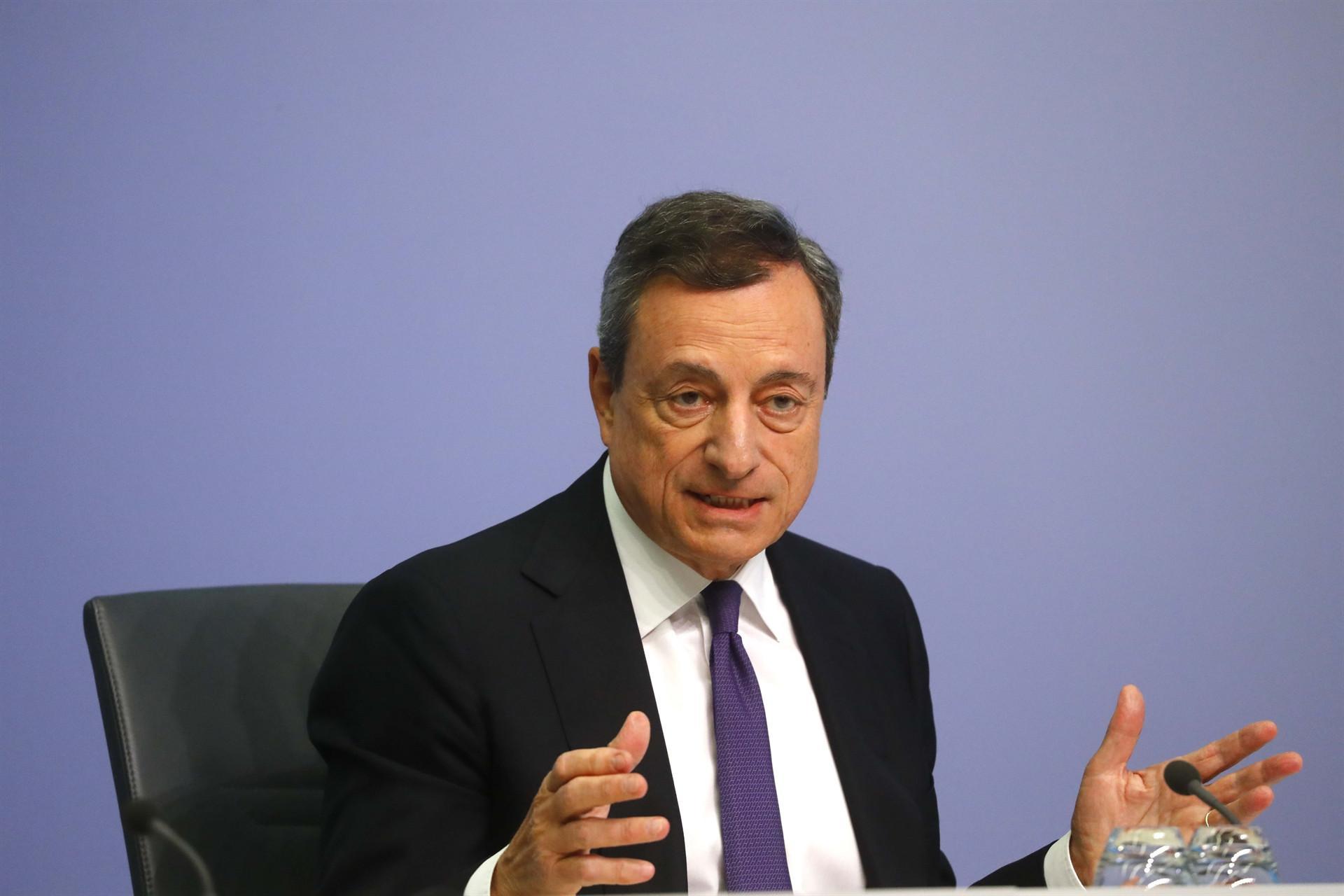
The European Central Bank reaffirmed that it will end its 2.6 trillion euro stimulus program this year on July 26, saying the risks from an unpredictable global trade conflict didn’t warrant any deviation from its plan.
ECB chief Mario Draghi said there had been no change in the bank’s message as it kept the 19-country euro zone’s interest rates at a record low - zero for its main borrowing rate and a sub-zero -0.4 percent for banks that park cash at the ECB.
It still plans to slow down and then wrap up its lavish asset purchases by the end of the year and sees rates staying on hold for another year, a guidance few if any investors had expected to change just six weeks after being first laid out.
“At this stage, we don’t see the need to modify or to add new language to our forward guidance on rates,” Draghi told reporters.
He did point to some signs of weakness that have started to emerge in the bloc’s economy. Exports have lost some momentum, he said, while a global trade war would change the picture altogether if it snowballed.
“Clearly a trade war where you would have rounds of retaliation and rounds of responses, would create an entirely different climate.”
There were hopes though it could be avoided after the United States President Donald Trump and European Commission head Jean-Claude Juncker said on Wednesday that they would negotiate rather than rush into imposing trade tariffs on each other.
“We took note of that, Draghi said.
“It’s too early to assess the actual content... “But if one can say something general, it is a good sign.”
Back on the bank’s monetary policy, Draghi said that there had been no discussion on how it will reinvest the money that will come in when the bonds it has bought over the last few years mature.
“Significant monetary policy stimulus is still needed,” he added.
Andrew Wilson, the EMEA CEO of Goldman Sachs Asset Management said it had bolstered its expectations for ECB moves going forward.
“We continue to expect a first rate increase in late-2019, though the balance of risks are skewed toward a later move.”
With inflation rebounding and employment at a record high, the ECB decided last month to end its 2.6 trillion euro ($3.0 trillion) bond buying scheme in December, taking its biggest step yet towards removing the stimulus credited with dragging the euro zone out of years of stagnation.
Growth has wobbled though. The composite PMI indicator dipped in June, consumer confidence eased and the German IFO business climate index for July fell - all pointing to a slowdown that might mean the ECB lowers its growth projections when it publishes new forecasts in September.
But the pace of eurozone expansion is still above what is seen as the bloc’s potential, so theECB can argue that the euro zone will continue to create jobs and eventually generate inflation, the bank’s ultimate aim. It targets price growth just below 2 percent.
With fresh bond buying set to end this year, the reinvestment of cash from expiring bonds will become a more significant policy tool, and Draghi has said that updated rules on how to spend this cash are likely to come in the coming months.
A key challenge is that the remaining maturity of the bond pile declines over time, so the ECB will have to decide whether to target longer-dated bonds or to accept the natural ageing of its portfolio.
Another option on the table may be to increase the ECB’s flexibility in reinvestments, as current rules on the timing of buys could tie the bank’s hands too much, forcing it to make large purchasesin a given market when smoother buys would be more appropriate.
Draghi said the ECB had not discussed the issue, but added that it would base any future decisions on reinvestments on its capital key, the amount of money each of its member central banks contribute to the ECB.